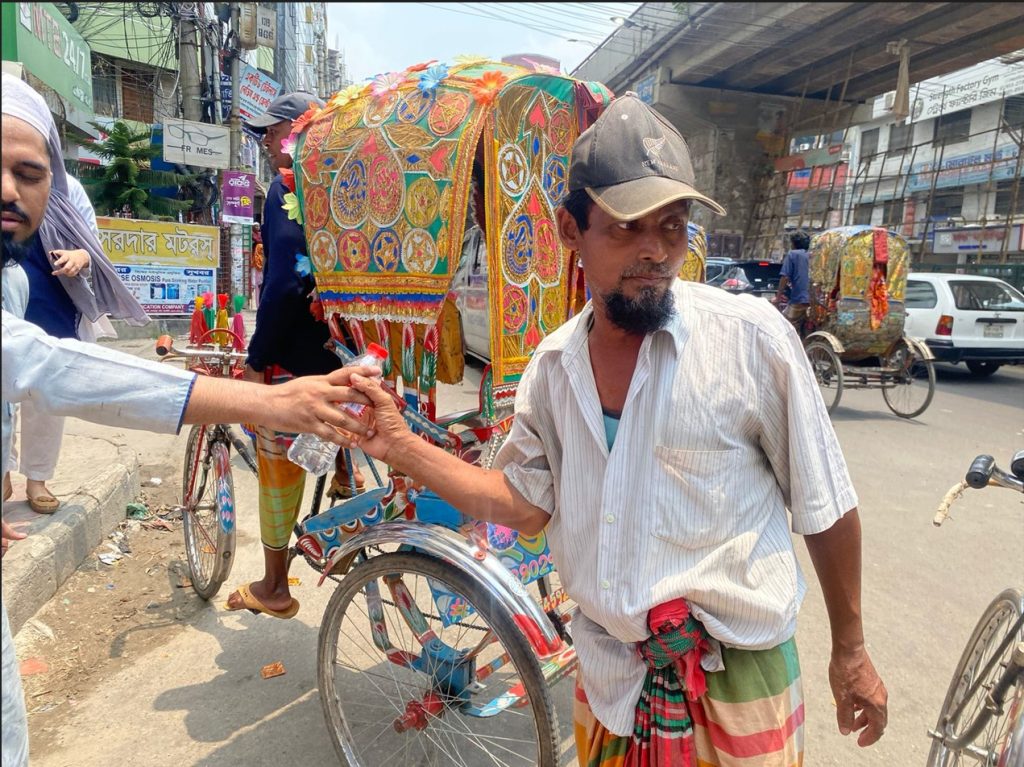
Fresh water distribution program at Dhaka



The NUR-SOBDER Foundation has launched an urgent and impactful Fresh Water Distribution Program in Dhaka in response to the extreme heat wave of 2024. As the city faces soaring temperatures, the program aims to address the critical issue of access to clean drinking water, which has become a pressing concern for many residents.
Dhaka, known for its dense population and high temperatures, is experiencing an unprecedented heat wave this year. The soaring temperatures have exacerbated water scarcity issues, making it increasingly difficult for people, especially those in underserved areas, to access safe drinking water. In response, the NUR-SOBDER Foundation has stepped in with a comprehensive plan to relieve affected communities.
The Fresh Water Distribution Program focuses on several key areas. First, it involves the establishment of mobile water distribution units that can reach various parts of the city. These units are strategically placed in high-need areas, including slums and low-income neighborhoods, where access to clean water is most limited. By bringing water directly to these communities, the foundation is addressing an immediate need and ensuring that vulnerable populations receive essential hydration during the heat wave.
Additionally, the program includes the installation of temporary water stations across Dhaka. These stations are equipped with filtration systems to ensure that the water distributed is safe and free from contaminants. The foundation has partnered with local authorities and health organizations to monitor the water quality and maintain the stations.
Public awareness and education are also integral components of the program. The NUR-SOBDER Foundation is conducting outreach efforts to inform residents about the importance of staying hydrated and using clean water. This includes distributing informational pamphlets and hosting community workshops.
The Fresh Water Distribution Program is a testament to the NUR-SOBDER Foundation’s commitment to addressing the needs of Dhaka’s most vulnerable populations during this crisis. By providing immediate relief and working towards long-term solutions, the foundation is helping to mitigate the impact of the heat wave and improve the overall well-being of the city’s residents.
Overall, the program exemplifies the importance of timely and effective intervention in disaster situations, and it highlights the critical role of community-focused initiatives in responding to climate-related challenges.
